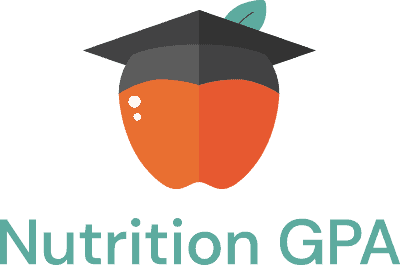I received the following email from a frustrated user of the Nutrition GPA app. I’m posting it here, along with my response, in case other app users might find it useful as well.
“I have been somewhat frustrated with the scores I’ve been getting on the Nutrition GPA app. I know I definitely do not eat enough fresh fruits and vegetables some days. But I think my diet is very good otherwise–just not in ways the app measures!
“For instance, I don’t eat any meat, I eat no dairy on an average day, I rarely eat eggs, I obsess over sodium, I rarely eat baked goods–and when I do, they’re homemade, low sugar, low sodium, dairy-free, etc., and the only white flour I eat is in baguettes, Portuguese rolls, or occasional pasta. Nevertheless, I’m getting Cs and even a D!”
How does the Nutrition GPA assess your diet?
- If you don’t eat any meat, then you are always getting points on Q9. So that’s certainly not responsible for your low grade!
- Avoiding diary and eggs is not associated with improved diet quality or reduced health risks. So they don’t impact your grade one way or the other.
- If you have high blood pressure and are sensitive to the effects of sodium, then that might be an important thing for you to watch. But for the majority of the population, avoiding sodium does not improve their health or their risks. So it’s not monitored in the Nutrition GPA.
- Baked goods that contain white flour will impact your grade–even when they are homemade, low sugar, low sodium, and dairy-free! If you’re only eating them occasionally, it shouldn’t affect your GPA too much. But research shows that replacing white flour with whole grain flour (or avoiding it altogether) improves health and nutrition. And that’s why you get a higher grade on days when you don’t eat things made with white flour.
There are also a few things that you DIDN’T mention. But if you are frequently having more than one alcoholic drink, more than 25 grams of added sugar, eating fried foods and/or you rarely eat fish, legumes, and nuts, this will drag down your Nutrition GPA.


Thank you, you’ve explained that very well.
It’s interesting to see what factors can drag down one’s GPA, even if one eats as healthy as possible. Definitely goes to show how much fried foods, sugars, and the like can contribute to this.
I totally hear and understand the listeners frustration. It’s definitely a challenge to get a high score consistently. I like the app because it’s a straightforward way for me to check in with my food choices even when I discover I have missed the mark.
I’m curious about the fact that there are no questions about fruit. My takeaway is that fruit intake (quantity or type) is not correlated with better diet/health. This surprises me! I’ve always used fruit to successfully satisfy cravings for sweets, so I think of them as a “better choice.” Plus they provide certain nutrients and fiber—but maybe not enough to matter?
To increase my nutrition GPA, I guess I should choose apple slices with peanut butter instead of an apple by itself, or a bowl of berries with yogurt and flax seeds instead of plain berries. And if I’ve already had legumes and yogurt and seeds that day, I’m probably doing very well and another piece of fruit is fine but not necessary.
Not at all! Fruit may not directly raise your score but it certainly contributes valuable nutrients to your diet. And it can indirectly improve your score when you use it as a “better choice” to satisfy a craving, because this may allow you to say No to Question 7.
So, yes, you could raise your score by pairing your apple with peanut butter or eating yogurt with your berries (assuming you haven’t already gotten points for those that day). But choosing an apple or some berries instead of cookies could also increase your score!
The truth is that most people don’t need as much encouragement to eat fruit as they do to eat vegetables. And with only 10 questions to work with, I had to be strategic about the questions that would have the biggest impact.
Thank you, this all makes sense. I really appreciate that the app is prompting me to consider choices in a way that feels sustainable rather than nitpicky. It’s all such good food for thought!!
I love the Nutrition GPA for many reasons, most of all because it encourages me to eat the best and avoid the worst, and isn’t nit picky or easy to get obsessive with. We are often influenced by so many fads and trends that aren’t helpful (like leaving out entire food groups). Tonight I’m looking at it with a critical eye and thinking about how the tool might work for people who are low income and food insecure. It seems like it might be a nice tool to introduce through WIC or community garden and Farm to School programs – programs that help people access vegetables.
If you come up with any ideas, I’d love to hear them.